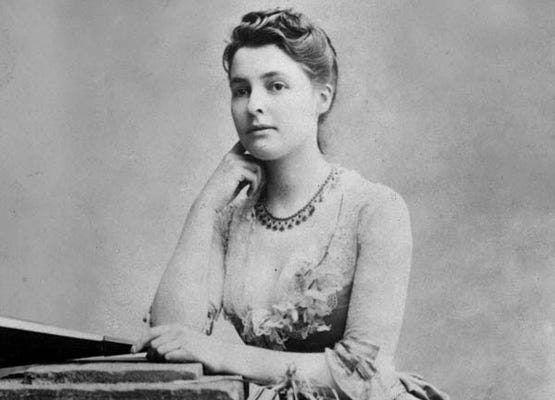Empathy...do you hear me?
A better partner, friend, and co-worker
This is the Kindness Magnet newsletter — useful kindness habits you can use to attract more opportunities, better health, relationships, and happiness. I’m Heather Johnston Brebaugh, author and kindness advocate.
In the early 1900’s, popular writers Jack London and George Orwell dressed themselves as destitutes, living on the East London streets so they could experience the lives of the homeless. The practice was known as empathy emersion. But in 1887, a lesser known figure, Beatrice Webb, was the first to take to the streets. As part of her research into urban poverty she donned rags and lace-less boots and took work at an East London textile factory. Her book, Pages From a Working Girl’s Diary, created a sensation at the time, the first publication to highlight the terrible conditions in late 19th century factories.
“My own investigations into the chronic poverty of our great cities opened my eyes to the workers’ side of the story,” Webb said.
Webb went on to campaign for better factory conditions for workers.
The Core of Our Understanding of Others
While we don’t need the extreme of empathy emersion to apply the principles of empathy to our own lives, empathy is at the very core of our ability to understand how others are feeling and to be able to relate and respond to them. Without empathy, we live our lives at the very surface of relationships.
Cognitive, Emotional, and Compassionate Empathy
One type of empathy isn’t necessarily better than another. You can listen to another person’s problems without being emotionally involved. Just by listening, you are offering empathy. That’s cognitive empathy. Or you may listen and feel emotionally connected. For example, if someone just lost a loved one and they are telling you how they feel, you may show emotional empathy if you can relate to the feeling of having lost a loved one. When someone tells you about their situation and you decide you want to help, then you are showing compassionate empathy.
Empathy can help us be better partners, better friends, more effective at work, and more interested in creating a better world. It begins by really listening to people and trying to see things from their perspective, without judging them or their situation.
Research shows that about 50% of our empathy is genetic. That leaves us with a huge opportunity to learn to be empathetic and choose to be empathetic in our daily lives.
Where I Missed the Boat
I was thinking about situations where I feel like I’ve tried to be empathetic and others where I totally missed the boat. I realized that the times where I was good at showing empathy were the times when I asked people about their situations and then listened, without judgment, to what they had to say. And those times where I missed were the times when I was so focused on myself that I didn’t take the time to listen, or perhaps I listened but I was already quick to judge.
We don’t need to be another Beatrice Webb. We can make our own lives richer and be more meaningful to others simply by listening. I’m going to give that a try.
What are your experiences with giving or receiving empathy? How did it make you feel?
May your week be filled with empathy. 💜
Heather Johnston Brebaugh




Feeling truly heard is such a gift. I’m always working on trying to listen better so that the speaker knows they are heard. Great post, Heather.
Another beautifully written piece! I'm reminded of this great video from Brene Brown (I shared it on an essay I wrote about this same topic :), very insightful. https://www.youtube.com/watch?v=KZBTYViDPlQ
As you said, since we are not always going to remember to be empathetic, one thing my wife and I will do is ask "what would an empathetic statement look like?" We will ask this of each other if we are having a hard time understanding the other person's point of view. Or, if one of us is too frustrated with our kids, this question helps to reframe our view and get aligned with empathy.
Empathy is compassion in action, in my view! :) Thanks Heather, this was inspiring.